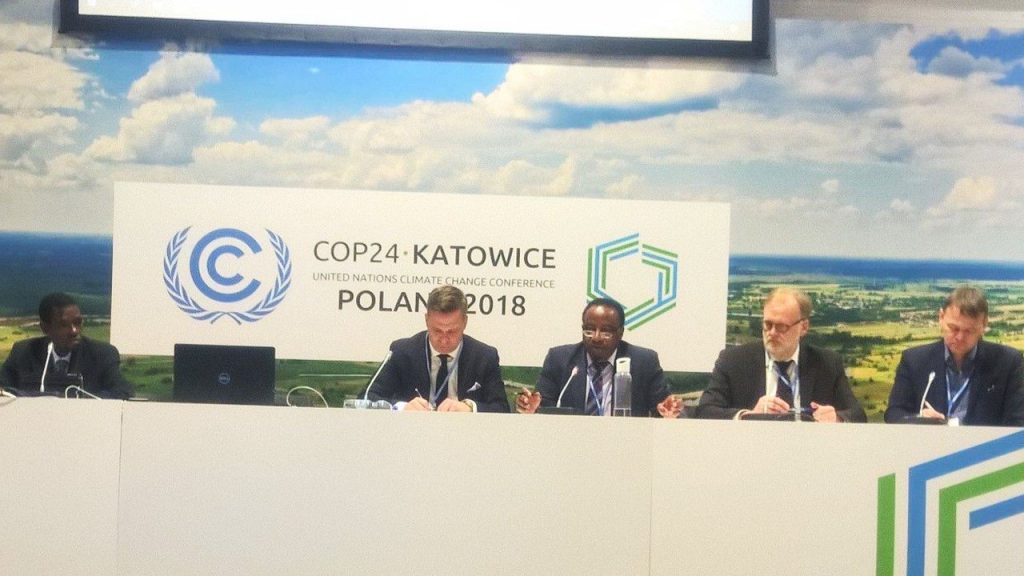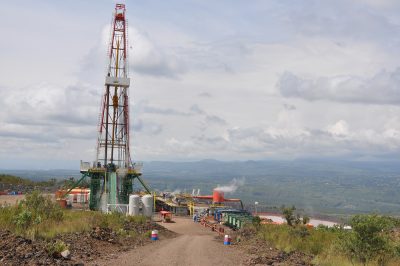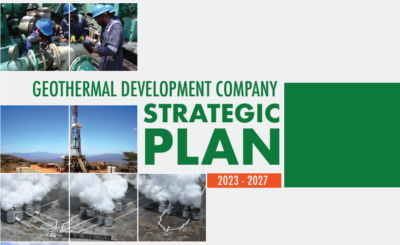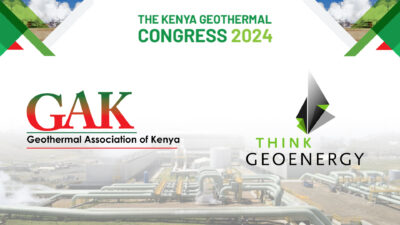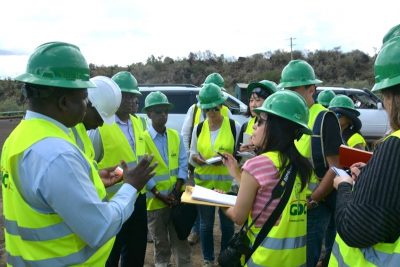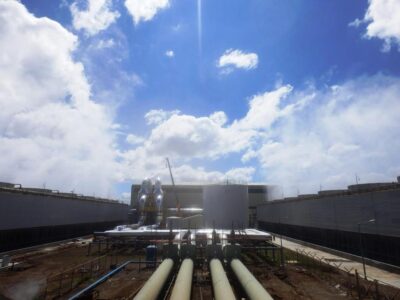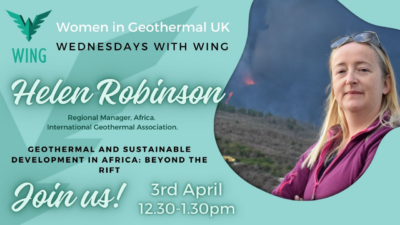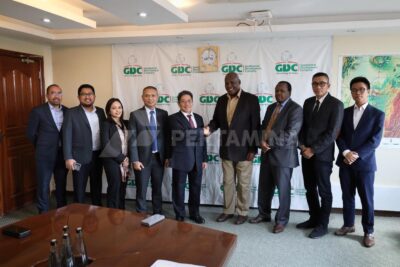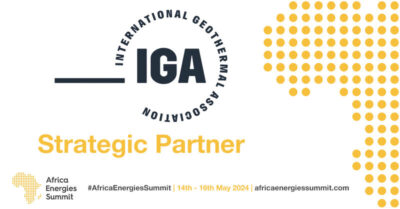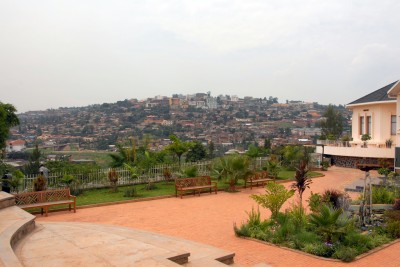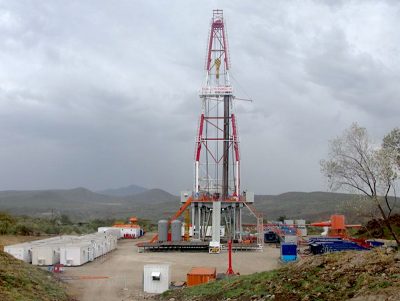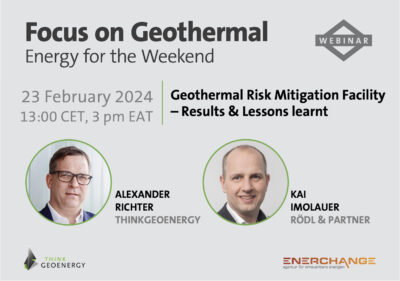COP24 – Discussing success and challenges for geothermal development in Africa
During the Climate Change meetings of COP24 in Katowice, Poland, the African Union held a great high-level panel discussion on success and challenges to geothermal development in Africa, showcasing its success with the Geothermal Risk Mitigation Facility (GRMF) scheme.
Yesterday, at the ongoing climate change meetings in Katowice in Poland, the African Union had organised a side event that discussed “Success and Challenges for Geothermal Development in East Africa”, and this in the context of the Geothermal Risk Mitigation Facility (GRMF).
The GRMF, as a grant program, has been set up to mitigate the high risk of exploration and reservoir confirmation drilling for geothermal projects. It is designed to cost share exploration work (surface studies and drilling programmes) of public and private investors acting as geothermal project developers (applications / eligible entities). So far 30 projects in 6 countries have been awarded funding of around $120 million with planned investment volume (by the developer) of around $9.2 billion.
Described as one of the most important renewable energy resources in the East African region by the African Union, geothermal energy is though not exploited to its full potential. Requested by Ministers for Energy of the countries of Burundi, Comoros, Democratic Republic of Congo, Djibouti, Eritrea, Ethiopia, Kenya, Rwanda, Tanzania, Uganda and Zambia, the African Union together with international partners – stablished the GRMF program in 2012.
The International partners to the program are, the German Federal Ministry for Economic Cooperation, the European Union (EU) – Africa Infrastructure Trust Fund, the German Development Bank KfW, and the UK Department for International Development (DFID).
The goal of the event was to exchange knowledge and information among stakeholders on recent development.
The event was opened by Atef Marzouk, the new Head of the Energy Division at the African Union and a presentation on the GRMF program and its status by Sylvain Degolmal Ngaryo, Principal Energy Expert at the African Union.
I was fortunate enough to be able to moderate the session in my role as President of the International Geothermal Association (IGA) highlighting the important role geothermal energy is already playing in Kenya and how important it can become for the other countries of the region.
The panelists provided a great variety of background for a lively discussion. The panel included Martin Garrood of the New Zealand Ministry of Foreign Affairs & Trade, Joshua Were of KenGen, Crispen Zana of the Africa-EU Energy Partnership, and Gunnar Örn Gunnarsson of Reykjavik Geothermal.
The discussions of the panel covered the ongoing development in Kenya, the support through the GRMF and its importance to help in the early stages of development, but also talking about the challenges for developers. With the great ambitions of the East African countries to push renewable and geothermal energy development, quite often the actual policies and legislative framework lag behind and cause delay for investors and development. The right legal framework for resource development and utilisation, but also a clear set up on how electricity is purchased by the countries’ utilities was seen as crucial.
KenGen highlighted its ongoing development in Kenya with confirmation that the 165 MW Olkaria V construction is progressing and is set for commissioning in July 2019 and the announcement of the groundbreaking for the 83 MW Olkaria I Unit 6 project.
Reykjavik Geothermal highlighted its involvement in the Corbetti and Tulu Moya geothermal projects in Ethiopia announcing that financing has been secured for the first phase of a 50-60 MW development for both projects with drilling being prepared.
Discussions then moved towards social acceptance and the need to engage local population in proximity to projects. The great initiative funded under the Power Africa project to provide an exchange of New Zealand’s Maori groups with Maasai groups in Kenya to share lessons learned in engagement with power developers and how benefits of development could be shared with the local population was praised. KenGen as developer shared the experience how attitude in the discussion changed and how the interaction with the local population and its representatives has positively changed. In that engagement, the benefits of geothermal energy beyond electricity in direct use applications and wider economic development, e.g. through industrial parks like being worked on by KenGen in Olkaria can not be underestimated and are crucial to gain broader acceptance by the local population and beyond.
Raised was also the importance of capacity building and the efforts by – among other – the Iceland Development Agency (ICEIDA), the UNU Geothermal Training Program, but also the support by New Zealand on education and building up excellence through the Africa Geothermal Centre of Excellence were praised and seen as incredibly important by the African representatives.
We then discussed that despite the great ambitions by the countries, development simply moves too slowly and bold decisions need to be made in order to speed up development. While programs like the GRMF are helping mitigating some drilling risk, overall risks need to be taken and development needs to be pushed through and lenders need to be gained earlier in the project funding cycle.
So while the GRMF program is a crucial part of the overall puzzle for geothermal development in the region, this needs to go hand-in-hand with political decisions and support in the countries with geothermal development.
In closing, a revolving fund was proposed that could help create a self-refinancing fund for geothermal development in the region that could be an addition to the GRMF program.
Overall a great event and showcase for geothermal energy as an important and clean energy source in East Africa. In Kenya, geothermal energy is already element in the country’s energy supply at times producing more than 50% of the overall electricity consumed. The same could be achieved in other countries in their electrification and renewable energy development efforts.
The event was actually taped, to have a look see here.
